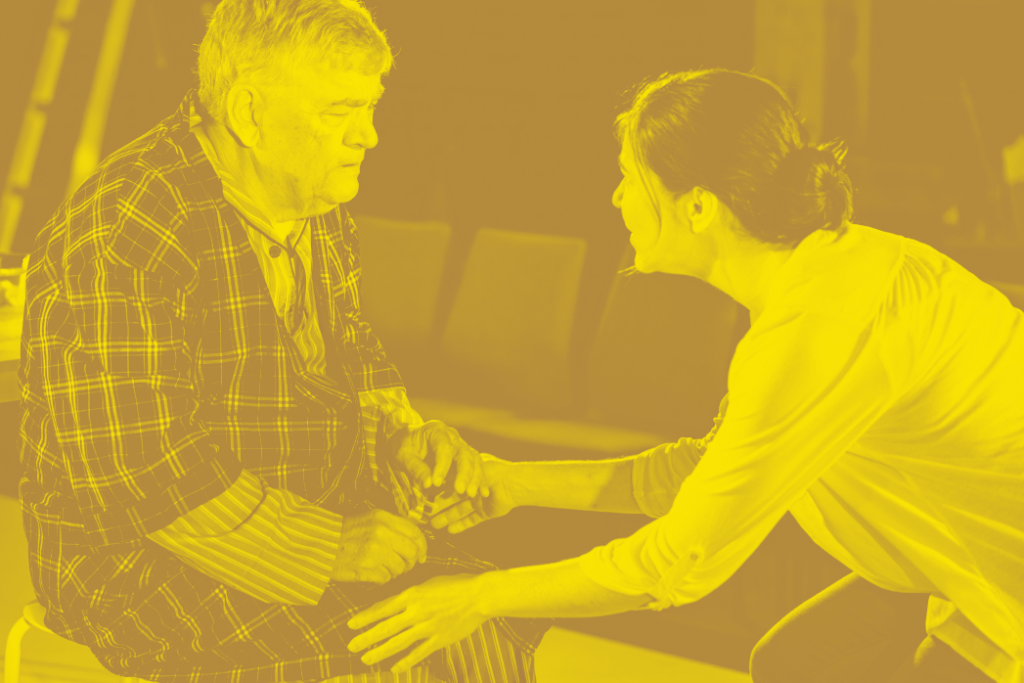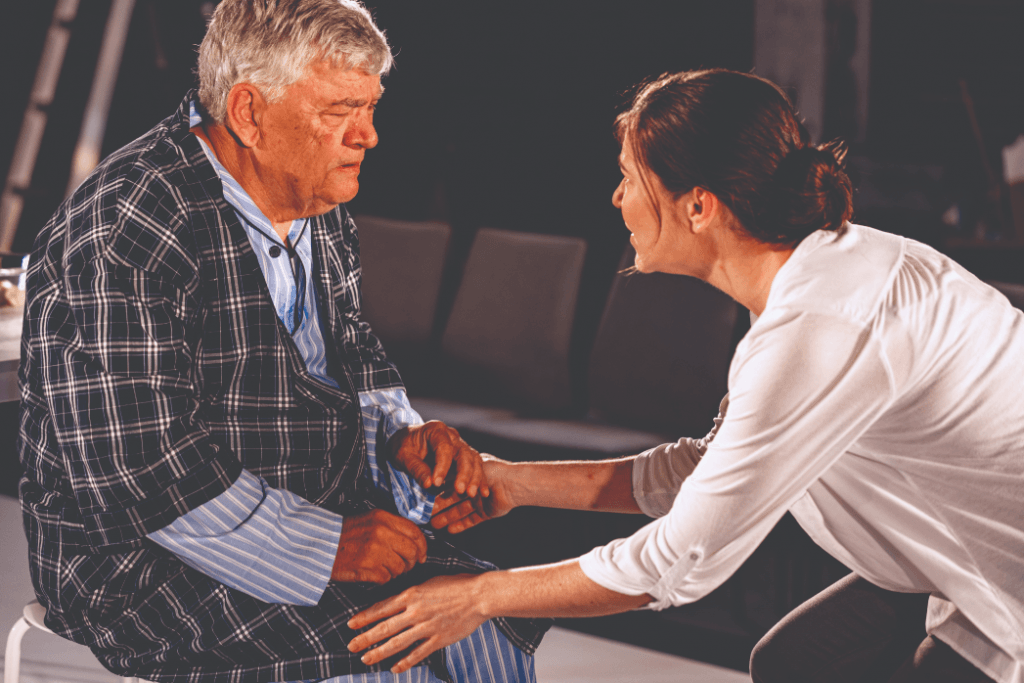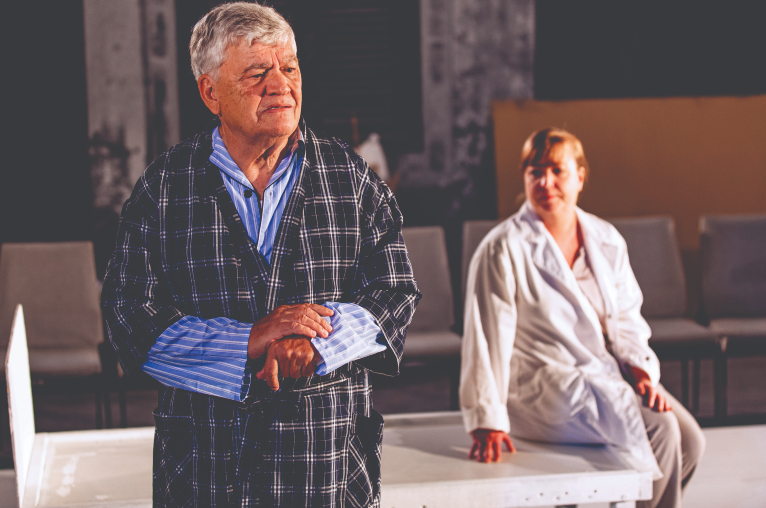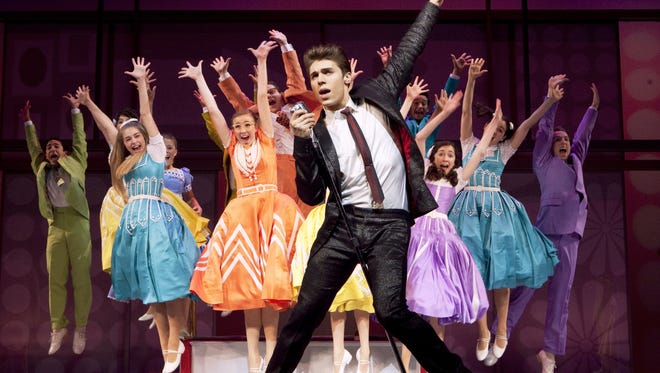
‘The Father’ // Moreton Bay Theatre Company
‘The Father’ was unforgettable.
There is a common thread woven throughout the contemporary plays that have emerged from France in the twenty-first century. Upon stages that are at once both minimalist and avant-garde, some of the very best psychological commentaries on the human condition come to life year after year in Parisian theatres.
These blissful tragedies and mournful comedies are simple and subtle without sacrificing their richness of character and dialogue. The stakes aren’t necessarily dire, but they examine the wants and wishes of characters that strike incredibly close to home.
These texts, it could be argued, are this century’s answer to the likes of Ibsen or Chekov.
Florian Zeller is a contemporary French playwright at the forefront of the nation’s theatricality. Thankfully for those of us who exist solely in the English-speaking world, his incredible ‘The Father’ has been translated by Christopher Hampton, who also gave us the translation of Yasmina Reza’s perfect ‘God of Carnage’; this is in safe hands.
‘The Father’ is the story of Andre, the elderly father of Ann, who has recently begun to show signs of dementia. Familial duty has burdened his daughter who, the audience learns early on, plans to move to England to be with the man she loves. She wants her father to relocate to an aged-care facility, but he, of course, emphatically insists he can make it on his own.
This premise is nothing new. In fact, it’s verging on cliché. But what makes Zeller’s script so unique is that here the focus is not upon the impact of dementia on loved ones and bystanders, as these stories often are, but instead upon the mind of Andre himself. The text is non-linear, presented in vignettes that appear before us as memories. But the audience must interpret these vignettes through the dissonant lens of Andre himself.
The “memories” are each cleverly and subtly skewed, leaving the audience to question their own recall of earlier scenes and characters. It would give away too much to say how this is achieved as this deliberate confusion and mental sleight-of-hand is part of the viewing experience, but trust that a surge of empathy for Andre will ripple through the audience as these recreations of early symptoms of dementia play out.
The play is the perfect choice for Tim Wynn, one of South-East Queensland’s finest directors. Wynn’s unique perspective and attention to detail are essential to the crafting of a production that is entirely real and yet entirely fantastical. He has mined each beat of this script to its fullest potential.
The most overwhelming highlight of the production is Sarah Ogden’s portrayal of Ann. The intimacy of the space means that audiences are treated to every breath and nuance of Ogden’s powerful performance of a woman for whom there is no ideal future. A particular scene in which Ann silently watches her father interact with his new nurse is, on its own, a pure acting masterclass. It is more-than-likely the best performance to take to an SEQ stage this year.
Similarly excellent is John Sayles in the titular role of Andre. Sayles’ task is not an easy one. As the shoes into which the audience step he cannot allow this connectivity to break, but at the same time he needs to execute scenes in which his character is so antagonistic that his behaviours are hard to forgive. Fortunately, Sayles’ Andre is so endearing and so vulnerable that this bridge between the audience and the stage is constantly maintained, and many audience members are likely to find his portrayal tear-inducing as he blows hot and cold with the same breath.
The supporting players in this story are all strong, but the cream of the ensemble is David Paterson as Pierre. As with Ogden, some of the production’s most intense moments come from Paterson’s silence – his observation of events that play out before him. He watches these as a being of pure menace and pure sincerity, taking fullest advantage of the intentional confusion of the piece to add his own layer of uncertainty to the minds of his audience.
It is hard to find imperfection in this perfectly realised production, though perhaps it could be argued that the construction of the set could have been executed with just a little more polish. The entire production takes place on a catwalk-like stage built into the centre of the theatre with the audience positioned on either side. The decision to stage the story in this way is a stroke of brilliance, thrusting the audience into the action with varying perspectives and sight-lines that build on the themes of the piece. But the constructedness of this stage is certainly visible.
Moreton Bay Theatre Company’s ‘The Father’ is an incredibly powerful and immersive experience. This script forms part of a trilogy by Zeller. The other two plays, ‘The Mother’ and ‘The Son’, have both played to international critical acclaim this year. If Tim Wynn gets his hands on either of these in the years to come, the future of theatre in this region will be bright indeed.
‘The Father’ plays until Sunday, 27 October 2019. Tickets are available at Moreton Bay Theatre Company’s Website.









